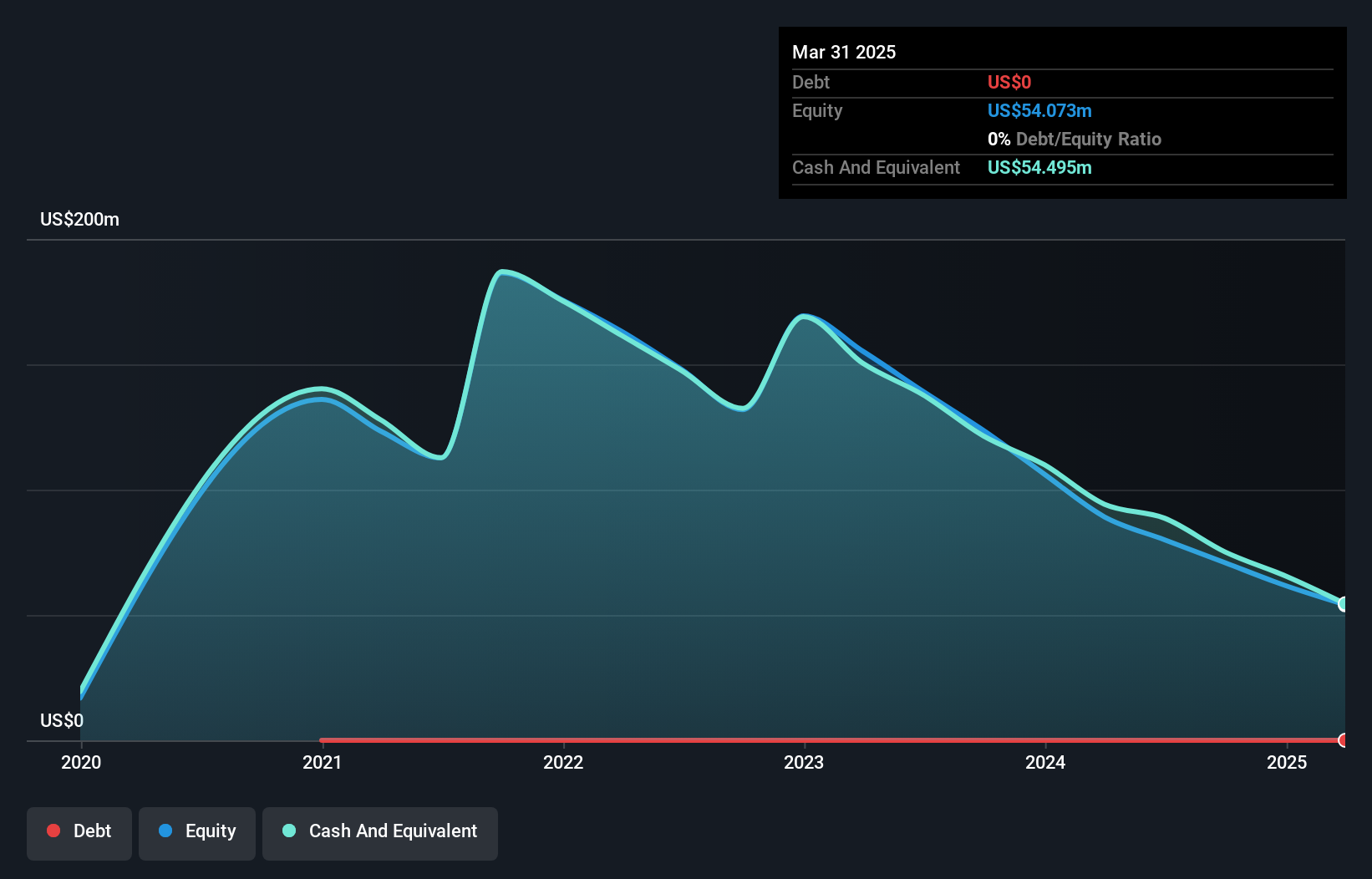We're Keeping An Eye On Rallybio's (NASDAQ:RLYB) Cash Burn Rate
We can readily understand why investors are attracted to unprofitable companies. For example, although Amazon.com made losses for many years after listing, if you had bought and held the shares since 1999, you would have made a fortune. But while history lauds those rare successes, those that fail are often forgotten; who remembers Pets.com?
So, the natural question for Rallybio (NASDAQ:RLYB) shareholders is whether they should be concerned by its rate of cash burn. In this article, we define cash burn as its annual (negative) free cash flow, which is the amount of money a company spends each year to fund its growth. Let's start with an examination of the business' cash, relative to its cash burn.
Does Rallybio Have A Long Cash Runway?
A cash runway is defined as the length of time it would take a company to run out of money if it kept spending at its current rate of cash burn. As at March 2025, Rallybio had cash of US$54m and no debt. Looking at the last year, the company burnt through US$44m. Therefore, from March 2025 it had roughly 15 months of cash runway. While that cash runway isn't too concerning, sensible holders would be peering into the distance, and considering what happens if the company runs out of cash. The image below shows how its cash balance has been changing over the last few years.

See our latest analysis for Rallybio
How Is Rallybio's Cash Burn Changing Over Time?
In our view, Rallybio doesn't yet produce significant amounts of operating revenue, since it reported just US$848k in the last twelve months. Therefore, for the purposes of this analysis we'll focus on how the cash burn is tracking. Even though it doesn't get us excited, the 23% reduction in cash burn year on year does suggest the company can continue operating for quite some time. Clearly, however, the crucial factor is whether the company will grow its business going forward. For that reason, it makes a lot of sense to take a look at our analyst forecasts for the company.
Can Rallybio Raise More Cash Easily?
Even though it has reduced its cash burn recently, shareholders should still consider how easy it would be for Rallybio to raise more cash in the future. Generally speaking, a listed business can raise new cash through issuing shares or taking on debt. Many companies end up issuing new shares to fund future growth. By looking at a company's cash burn relative to its market capitalisation, we gain insight on how much shareholders would be diluted if the company needed to raise enough cash to cover another year's cash burn.
Rallybio has a market capitalisation of US$21m and burnt through US$44m last year, which is 207% of the company's market value. That suggests the company may have some funding difficulties, and we'd be very wary of the stock.
So, Should We Worry About Rallybio's Cash Burn?
On this analysis of Rallybio's cash burn, we think its cash burn reduction was reassuring, while its cash burn relative to its market cap has us a bit worried. Considering all the measures mentioned in this report, we reckon that its cash burn is fairly risky, and if we held shares we'd be watching like a hawk for any deterioration. On another note, Rallybio has 4 warning signs (and 2 which are concerning) we think you should know about.
Of course Rallybio may not be the best stock to buy. So you may wish to see this free collection of companies boasting high return on equity, or this list of stocks with high insider ownership.
Have feedback on this article? Concerned about the content? Get in touch with us directly. Alternatively, email editorial-team (at) simplywallst.com.
This article by Simply Wall St is general in nature. We provide commentary based on historical data and analyst forecasts only using an unbiased methodology and our articles are not intended to be financial advice. It does not constitute a recommendation to buy or sell any stock, and does not take account of your objectives, or your financial situation. We aim to bring you long-term focused analysis driven by fundamental data. Note that our analysis may not factor in the latest price-sensitive company announcements or qualitative material. Simply Wall St has no position in any stocks mentioned.
 Wall Street Journal
Wall Street Journal